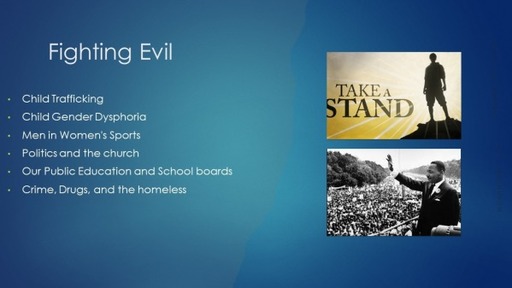God Has a Purpose for You

Major Posts from Minor Prophets: Be an Influencer • Sermon • Submitted • Presented • 49:39
0 ratings
· 27 viewsFiles
Notes
Transcript
Back in the land after 70 years of captivity.
The land was in ruins.
They found themselves so focused on the every-day things of their household, that they had not time, resources, or energy left for the LORD or the care of the temple.
The Jews who returned from Babylon had been given to expect the very desert to burst into flower (Isa. 35:1). Instead they found the desert encroaching on their fields and orchards as one year of drought succeeded another. The consequent food shortage and poverty had taken the heart out of those who might otherwise have been eager to rebuild. Three centuries earlier Amos had commented on freak weather conditions and blighted harvests (Amos 4:6f.), teaching that these had been God’s warning signs, which Israel had been too self-confident to recognize. Though the circumstances were different Haggai saw in the recurrent droughts a divine rebuke. (Joyce G. Baldwin, Haggai, Zechariah and Malachi: An Introduction and Commentary, vol. 28, Tyndale Old Testament Commentaries (Downers Grove, IL: InterVarsity Press, 1972), 29–30).
The more they focused at home, the more the LORD removed His blessings on their efforts. The more He removed their blessings, the more difficult it became to manage the things at home and the less time and resources they could find to do it all.
Haggai’s ministry was one of crying out to his generation as the Lord prompted him. His message is one of urgency. The message was clear, relentless, and uncompromising.
The Israelites needed and immediate restoration of God as center stage in their lives. If they were to put the Lord first, His blessings on their efforts would return.
“But seek first [God’s] kingdom and his righteousness, and all these things will be given to you as well” (Matt 6:33). With these words Jesus summarized the acceptable priorities of life for those who would follow him. Such a view on life appears to have been for Jesus’ disciples an entirely new and unexpected concept, one both liberating in its potential but no less intimidating in its demands. His disciples shared a natural inclination to worry about the basic necessities of life. A significant portion of their waking hours was spent providing for such basic family essentials as food, clothing, and shelter. But these concerns, if not balanced by a sense of urgency with regard to the service of God, can easily undermine a proper sense of what is actually most important in life, namely the advancement of the kingdom of God. In fact, preoccupation with such concerns can lead to a type of personal decision making that focuses first on meeting temporal human needs and offers God only what is left over after essential matters of personal security and comfort have first been decided.
Christ, instead, urges all to first seek the kingdom of God and all needed things will be added to him. It seems that every generation of believers, from ancient times to modern, must learn this lesson anew.
Richard A. Taylor and E. Ray Clendenen, Haggai, Malachi, vol. 21A, The New American Commentary (Nashville: Broadman & Holman Publishers, 2004), 24.
Be conscious of your need, prepared to confess your failure, dissatisfied with how things are, and ready to take action.
Resignation to how things are, kills faith, but resolution to God as priority changes everything.
It is not just that everything will turn out right in the end, but that the unchanging God is working out his purposes now.
Present obedience sets God’s people in line with fulfillment of his ultimate purpose, and his Spirit fills them with the conviction that they are experiencing, in a small measure, the ‘realized [promises of God] eschatology’.
The word “consider” in verses 5 and 7 comes from a compound word in the Hebrew; sym - meaning to lay or set down or fix and le-bab - meaning your heart, your gut, your conscience. Together it urges one to fixate deep within themselves in careful thought.
The message of Haggai begins with three things for the Israelites to consider in such a way; dare I say, three things worth considering for any of God’s people throughout time.
Consider your present focus (Haggai 1:1-6)
Consider your present focus (Haggai 1:1-6)
Consider your present focus (Haggai 1:1-6)
++You and your home are center in your focus (Haggai 1:1-4)
++No matter how hard you word, it’s never enough (Haggai 1:5-6)
Consider a new focus (Haggai 1:7-11)
Consider a new focus (Haggai 1:7-11)
Consider a new focus (Haggai 1:7-11)
++Make God’s glory your central focus (Haggai 1:7-8)
++Make God’s work your first priority (urgent , Haggai 1:9-11)
Consider What God Will Do (Haggai 1:12-15)
Consider What God Will Do (Haggai 1:12-15)
Consider What God Will Do (Haggai 1:12-15)
++God will make His presence known to you (Haggai 1:12-13)
++God will stir up your spirit to do what is right and needed (Haggai 1:14-15)
Be conscious of your need, prepared to confess your failure, dissatisfied with how things are, and ready to take action.
Resignation to how things are, kills faith, but resolution to God as priority changes everything.
It is not just that everything will turn out right in the end, but that the unchanging God is working out his purposes now.
Present obedience sets God’s people in line with fulfillment of his ultimate purpose, and his Spirit fills them with the conviction that they are experiencing, in a small measure, the ‘realized [promises of God] eschatology’.
